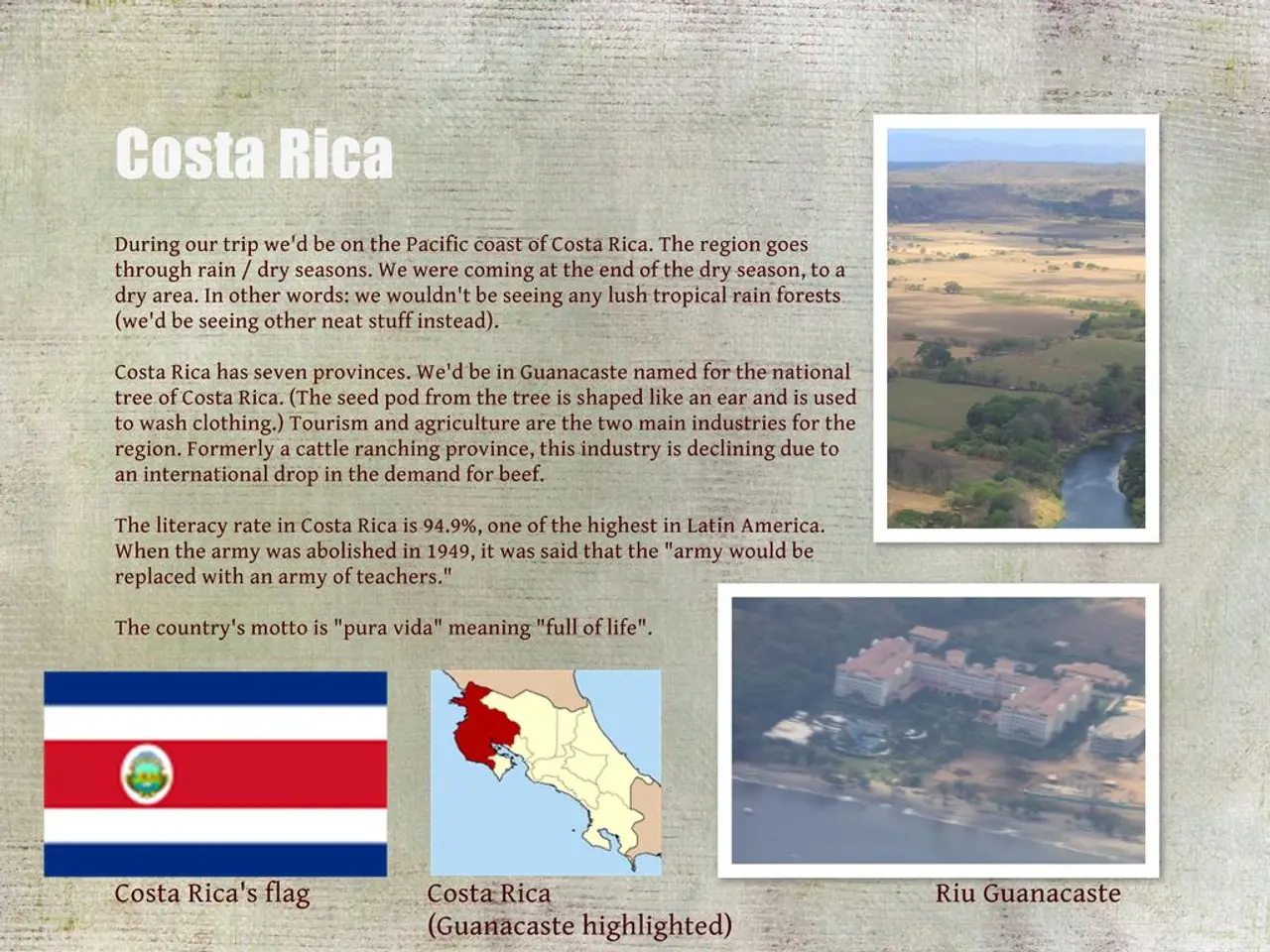Authorities in Nicaragua take over school owned by Josephine Sisters organization
In a recent turn of events, the Nicaraguan government, led by President Daniel Ortega and Vice President Rosario Murillo, has seized the San Jose School in Jinotepe, Carazo department. The school, which had been operating for 40 years, was run by the Congregation of the Josephine Sisters.
The expropriation of the San Jose School is not an isolated incident. The Nicaraguan government has also seized property belonging to religious orders or the Catholic Church, as shown by the recent expropriation of the San Jose School and the previous seizure of two Church-owned buildings: the San Luis Gonzaga Seminary and the La Cartuja spiritual retreat center.
The San Luis Gonzaga Seminary, located in the Diocese of Matagalpa, was expropriated by the Nicaraguan regime in January.
The actions taken by the Ortega government towards institutions such as the San Jose School and religious orders have been met with significant concern and condemnation from international organizations and human rights advocates. These measures are widely perceived as part of an authoritarian crackdown that includes suppression of dissent, undermining of judicial independence, and aggressive control over civil society and religious organizations.
Rosario Murillo, the Vice President of Nicaragua, has accused the nuns of the Congregation of the Josephine Sisters of being involved in "crimes" during the 2018 protests. Researcher Martha Patricia Molina condemned the government's action, accusing Murillo of defaming the religious congregation of the Josephine Sisters.
The Josephine Sisters, who arrived in Nicaragua in February 1915, have always dedicated themselves to educating boys and girls in Christian and humanist values, grounded in love for others and the practice of charity. The San Jose School, under their care, was a prominent religious educational establishment.
The San Jose School will be renamed the "Bismarck Martínez Educational Center," in honor of a Sandinista activist killed during the 2018 protests. This decision has sparked controversy and further concern over the government's actions.
International human rights advocates have condemned such measures as violations of human rights, religious freedom, and democratic norms. The U.S. State Department's Bureau of Western Hemisphere Affairs denounced the expropriation of the San Jose School on its X (formerly Twitter) account. However, specific reports on the San Jose School from other international organizations such as the UN or Amnesty International were not found in the current search results.
The La Cartuja spiritual retreat center's location is not specified in the provided text. The details on actions against the La Cartuja retreat center are also not fully outlined, but the pattern of targeting independent institutions by requiring court authorization for seizures and evictions under a circular that effectively subordinates the judiciary to the regime is evident.
Moreover, international bodies and foreign governments remain critical of Ortega's authoritarian governance and its impacts on freedoms, although detailed statements on the San Jose School specifically are not found in the search results. The criticism includes allegations of collusion between government forces and illegal actors that further destabilize civil society.
In summary, the Ortega government's actions towards the San Jose School and other religious and educational institutions align with broader state repression documented since 2018, including violent crackdowns on protests and constitutional reforms entrenching authoritarian rule. International organizations and human rights advocates view these moves as violations of rights and freedoms, expressing concern over the suppression of independent voices including religious orders and schools.
- The seizure of the San Jose School by the Nicaraguan government, as well as other religious properties like the San Luis Gonzaga Seminary and the La Cartuja spiritual retreat center, is a part of a broader pattern of state repression, which has raised concerns among international organizations and human rights advocates over the suppression of independent voices, including religious orders and schools.
- The actions taken by the Nicaraguan government towards institutions such as the San Jose School and religious orders, including the expropriation of these properties and the use of politics for war-and-conflicts-related purposes, are widely perceived as part of an authoritarian crackdown that breaches democratic norms, human rights, and religious freedom.







